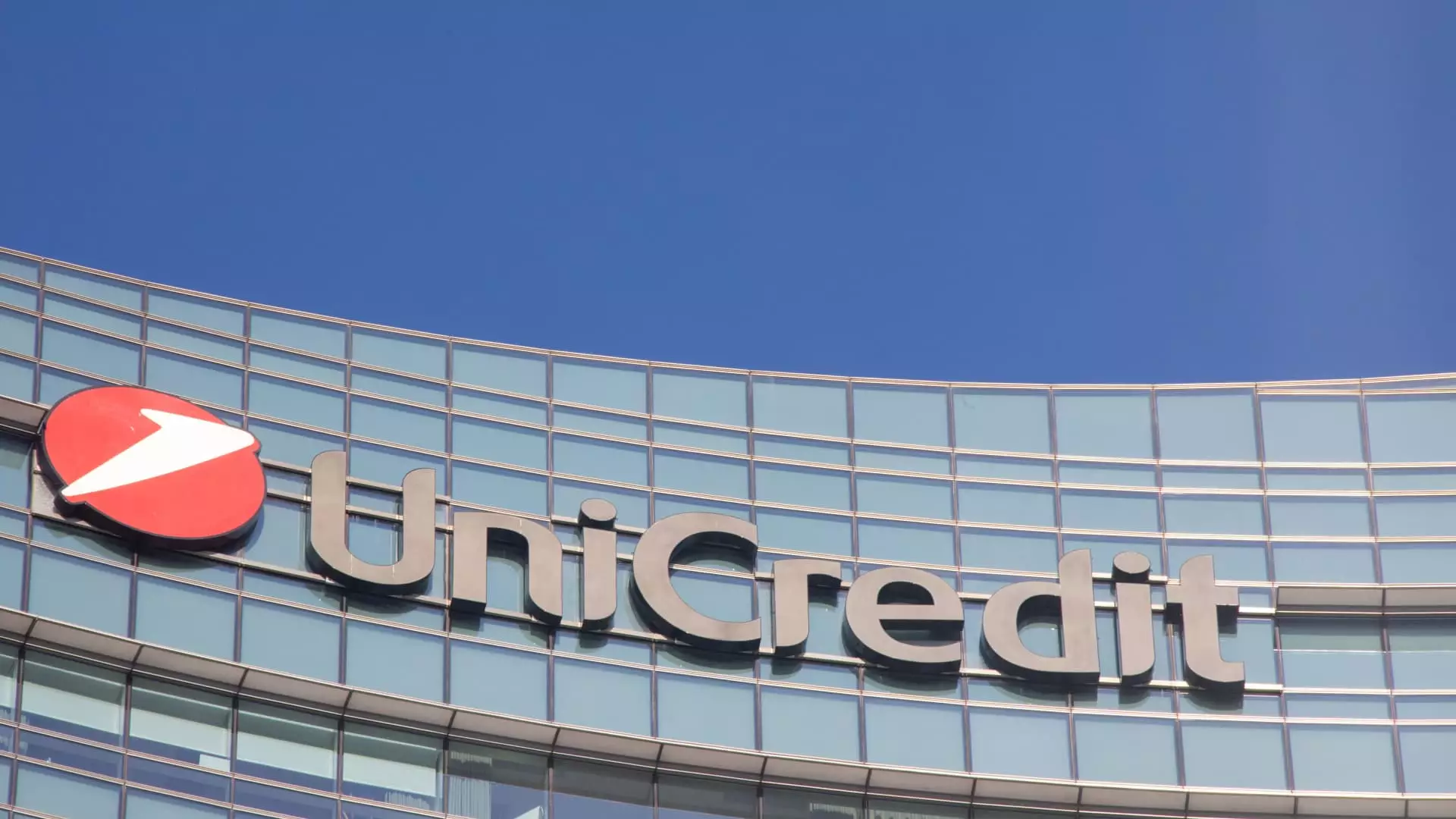The recent announcement from Italian banking heavyweight UniCredit regarding its intention to acquire Banco BPM has stirred significant discussion in financial circles. Valued at approximately 10 billion euros (around $10.5 billion), this all-stock offer represents a strategic maneuver amidst the ongoing wave of mergers and acquisitions sweeping through the European banking landscape. With a proposition of 6.657 euros per share, which slightly surpasses Banco BPM’s closing price of 6.644 euros, the deal symbolizes UniCredit’s goal of solidifying its position as a major player in the pan-European banking sector.
The proposed acquisition comes at a time when many industry analysts have long predicted the need for consolidation within Europe’s banking infrastructure. Given UniCredit’s cash-rich status and prior mergers that successfully strengthened its market dominance, the move is not entirely surprising.
Market Reactions and Industry Context
Immediately following the announcement, financial markets reacted predictably. While UniCredit shares dipped by 1.7%, Banco BPM’s stock experienced a surge of 5%. This divergence highlights the market’s perception of risk associated with UniCredit versus the optimism surrounding Banco BPM’s potential newfound value in a merged entity. Additionally, the announcement coincides with an ongoing trend of consolidation within the European banking sector, an industry ripe for restructuring following years of sluggish growth and low-interest rates.
Historically, strategic acquisitions have facilitated the expansion of banking institutions, allowing them to leverage economies of scale and foster an expanded customer base. However, such integrations are fraught with challenges. As noted by Kian Abouhossein from JP Morgan, UniCredit’s CEO Andrea Orcel faces a complex scenario; attempting to navigate multiple acquisitions simultaneously could lead to complications, especially when coupled with regulatory scrutiny.
The Commerzbank Complication
Interestingly, the backdrop of this acquisition attempt includes UniCredit’s ongoing interest in the German lender Commerzbank. Having increased its stake in Commerzbank to 21% with aspirations to elevate it to 29.9%, the Italian bank is clearly pursuing aggressive growth strategies beyond its domestic borders. However, this parallel interest in two major acquisitions raises questions about the feasibility of managing them simultaneously.
Political factors are also in play, particularly given the German government’s cautious stance on foreign takeovers. Chancellor Olaf Scholz’s remarks regarding the need for friendly negotiations underscore the complex nature of the financial landscape, as governments show increased interest in protecting their national banks from perceived hostile actions.
Intriguingly, Banco BPM is not merely a passive player in this scenario. Just prior to UniCredit’s proposal, the bank sought to bolster its portfolio by making a bid for asset manager Anima, indicating a proactive approach to growth and an eagerness to enhance its market standing. Furthermore, its acquisition of a 5% stake in Monte dei Paschi di Siena illustrates that Banco BPM is keen on positioning itself favorably in an evolving landscape, thus complicating UniCredit’s overtures.
As the dust settles, it is important to consider UniCredit’s robust financial performance, evidenced by its recent announcement of an 8% increase in quarterly net profit, which reached 2.5 billion euros ($2.25 billion). This performance allows UniCredit to elevate its full-year profit guidance and signals a healthy financial foundation upon which to mount its acquisition strategy.
Nonetheless, potential hurdles remain. Regulatory bodies will play a critical role in evaluating the implications of such significant mergers. These entities will assess not only the operational risk of merging two sizable banks but also the overarching impact on the financial ecosystem. Stakeholders will remain vigilant as developments unfold.
UniCredit’s proposed acquisition of Banco BPM presents a fascinating case study in strategic growth amid a backdrop of heightened merger activity within the banking sector. While the potential benefits of consolidation are substantial, it is imperative to recognize the inherent challenges, particularly regarding regulatory scrutiny and the effective integration of substantial financial institutions. As the market evolves, both challenges and opportunities will shape the future of banking in Europe. The coming months will provide critical insights into whether UniCredit can successfully navigate these complexities and emerge as a dominant force in the banking landscape.

